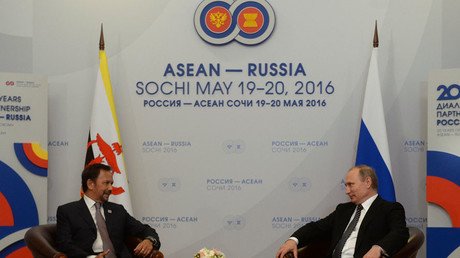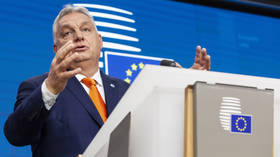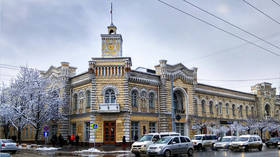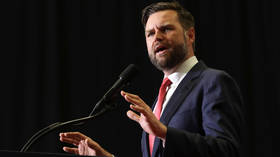ASEAN ready to ‘seriously look into’ free-trade deal with Russia-led EAEU – Malaysian PM to RT
Malaysia’s PM, Najib Razak, told RT that the “historic” Sochi summit showed willingness to create a free trade deal between ASEAN and the Eurasian Economic Union, seen by some as a counterweight to TPP, while calling anti-Russian sanctions “ineffective.”
Speaking to RT’s Daniel Bushell on the sidelines of the third Russia-ASEAN summit held in Sochi, Russia on May 19-20, Prime Minister Razak hailed the event as “significant,” saying it has provided an opportunity “to look back where we’ve come and what we’ve accomplished, but more importantly to look forward.”
One of the key outcomes was that a consensus emerged among the participants that the Association of Southeast Asian Nations member states should broaden their economic cooperation with the Russia and Eurasian Economic Union (EAEU) to the extent of creating a free-trade agreement between the two. EAEU is a trade block comprising Russia, Belarus, Kazakhstan, Armenia and Kyrgyzstan.
“The most important item is the consensus about ASEAN that we need to seriously look into establishing a free-trade agreement with the EAEU,” Razak said in an exclusive interview with RT, estimating the combined GDP of ASEAN and EAEU member states at $3.5 trillion and their combined populations at 755 million people.
The concept for the prospective economic union will be confined exclusively to facilitating the movement of goods within the common economic area and reducing tariffs, and will not affect “political sovereignty issues,” as in the EU, which has transformed from a purely economic into an economic-and-political union.
READ MORE: Dancing diplomacy: Russian Foreign Ministry spokeswoman wows ASEAN with fiery folk dance
Apart from economic integration with Russia, the politician also emphasized the importance of bolstering security, as well as political and cultural cooperation, in order to increase “connectivity” within the region.
When asked by RT about the effectiveness of sanctions as an economic tool, Razak cast doubt on the value of such an approach, especially when indiscriminately imposed on a country as a whole, as is the case with Russia.
"Even if you want to impose sanctions they should be more targeted,” he said, stressing that if it comes to deciding between waging war or imposing economic restrictions, war should be avoided at all costs, but that doesn’t mean sanctions are an effective instrument.
“I don’t think so, I don’t think they are really so effective,” said the prime minister.
To be justifiable, sanctions should not “really hurt the people, the masses.”
“The most important thing is to engage in the process of consultations, negotiations, and try to avoid even to contemplate imposition of sanctions, because I think it will hurt more people than you intend,” he added.
Addressing the need for financial institutions that can serve countries located in the Asia-Pacific, Razak highlighted the role of the Asian Infrastructure Investment Bank (AIIB), which was created at China’s initiative in 2015 to help in “reducing the development gap” within the region and to “strengthen connectivity within Asia as a whole.”
The banking mechanism, which was launched in January of 2016, was devised as a multilateral development bank (MDB) with a focus on infrastructure development in Asia. The 57 countries that signed the AIIB’s Articles of Agreement make up its prospective members. Russia ratified the Articles on December 25, 2015.
The core difference between AIIB and the International Monetary Fund (IMF) will be that AIIB will interfere less with its subscribers’ internal policies, refraining from such measures as imposing strict austerity measures that proved ineffective during the Asian financial crisis of 2007-2008, “because the prescription was too painful and too austere.”
“AIIB will be very different from IMF, because IMF imposes rather austere conditions and this conditionality is not accepted by Malaysia,” Razak stressed, adding that the bank “will not enter the area of fiscal and macro or other monetary policies of each country” beyond the “point of making sure that they have the capacity” to service their debts.
The institution, whose first annual board of governors meeting is scheduled for June of this year, should “give a concept to see ASEAN as a community.”














